Faced with the prospect of having to retaliate against US tariffs with certain economic damage, experts say Europe and other partners of Washington are likely to seek more stable trade opportunities in the Chinese market.

US President Donald Trump threatened to impose a 200% tariff on wine, champagne and other alcoholic beverages imported from European countries if the EU does not stop imposing reciprocal tariffs on $28 billion worth of US goods from April 2025 - Photo: AFP
"The one who is laughing on the sidelines or watching from the other side is China," Kaja Kallas, the European Union's high representative for foreign policy, told Bloomberg Television on March 13 that Beijing would benefit from the EU-US trade war.
Consumers on both sides suffer first.
Earlier the same day, US President Donald Trump threatened to impose a 200% tax on wine, champagne and other alcoholic beverages imported from European countries if the EU does not stop imposing reciprocal taxes on $28 billion worth of US goods from April 2025.
Speaking about the move to respond to Washington's tariffs, European Commission President Ursula von der Leyen said the EU had "no choice" in choosing these measures because they would "threaten jobs" and cause "price increases in both Europe and the United States".
European consumers will soon face rising prices on a range of goods, from cars to jeans, as industries such as steel, retail and agriculture struggle with rising costs amid tit-for-tat tariffs between the US and Europe, CNBC reports.
Susannah Streeter, director of currencies and markets at Hargreaves Lansdown, said the EU tariffs would push up costs for “a range of manufacturers, particularly car manufacturers, and food producers”. The scale of the impact on consumers would be profound, with Streeter citing the potential for rising costs on everyday items such as a can of Coke or a tin of beans.
Sharing Streeter’s view, Stuart Katz, chief investment officer at Robertson Stephens Asset Management, also predicted that prices would start to rise when the EU’s retaliatory tariffs take effect on April 1. Katz said consumers would soon feel the brunt of the tariffs, as businesses raised prices to protect profit margins.
For consumers in the US, tariffs of up to 200% on alcoholic beverages from Europe will mean they will have to pay two to three times the previous price for a bottle of French wine.
"I don't think customers are willing to pay two or three times more for their favorite wine or champagne," CEO Ronnie Sanders of Vine Street Imports, a wine importer in New Jersey, told the AP news agency.
Meanwhile, Jeff Zacharia, president of Zachys Wines in Port Chester, New York, said 80 percent of the wine he sells comes from Europe. He added that the distribution systems of wine importers in the United States are heavily dependent on European wines and there will not be enough American supply to make up for the loss of wine imports due to high tariffs.
The United States is a major export market for European wine producers, importing €13.1 billion (over $14.2 billion) worth of beverages, spirits and vinegar from the EU in 2024, according to the International Trade Centre.

Source: EUROSTAT - Content: NGHI VU - Graphics: T.DAT
China benefits
In response to Washington's unilateral tariff moves, former US diplomat Wendy Cutler said this could prompt US allies to build closer ties with China or India.
The Diplomat magazine also commented that the US-EU relationship could falter under the Trump administration, and this is a golden opportunity for China to mend relations with the bloc, as both are victims of US tariffs.
Already locked in a trade war with the US, Beijing could avoid this upheaval spreading by being more flexible in its negotiations with the EU, giving in to some demands or some tariffs to build political trust.
Regarding opportunities to leverage China's influence, Ms. Cutler pointed out that Beijing is courting many markets around the world, as well as emphasizing that China recently upgraded its free trade agreement with the ASEAN region.
"They (China) are making overtures to many other countries. And when our partners can't rely on us, they will find other countries, including China, more attractive," Ms. Cutler commented.
Sharing the same view with Ms. Cutler, many experts also said that Europe is eyeing many other markets as tensions with the US escalate.
"The reality is, given the vastness of the world, Europe will have to look for alternative markets to the U.S. market, and China can step in to help," David Roche, strategist at Quantum Strategy, told CNBC.
Tesla also warns of tariff consequences
According to Reuters on March 13, billionaire Elon Musk's Tesla Company warned that it and other major US exporters would suffer from retaliatory tariffs from other countries for Mr. Trump's tariffs.
The letter, dated March 11 and sent to the Office of the US Trade Representative, reflects the concerns of many US businesses about Mr. Trump’s tariff war, but it is worth noting that Tesla is owned by billionaire Musk - a close ally of the current US President.
In the letter, Tesla said US exporters are being disproportionately impacted as countries respond to Washington's trade moves.
"For example, previous US trade actions have resulted in immediate responses from targeted countries, including increased tariffs on electric vehicles imported into those countries," Reuters quoted the letter as saying.
Tesla also warned that even with a heavily localized supply chain, “some parts and components are difficult or impossible to source domestically in the United States.”
Source: https://tuoitre.vn/trung-quoc-huong-loi-tu-thuong-chien-my-au-2025031508015049.htm




![[Photo] Prime Minister Pham Minh Chinh chairs conference on anti-smuggling, trade fraud, and counterfeit goods](https://vphoto.vietnam.vn/thumb/1200x675/vietnam/resource/IMAGE/2025/5/14/6cd67667e99e4248b7d4f587fd21e37c)



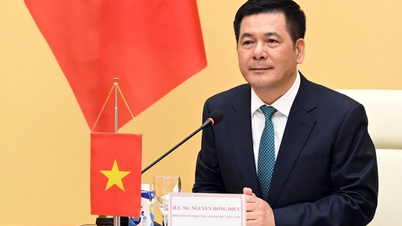

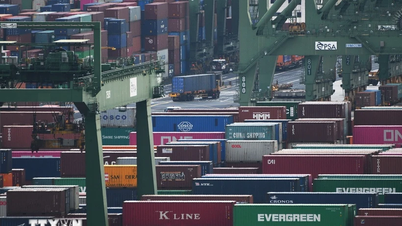
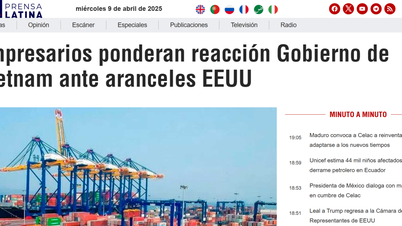

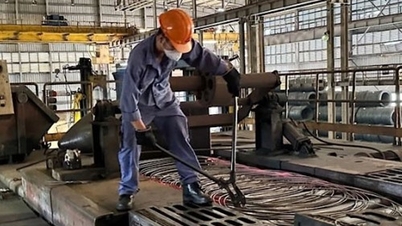



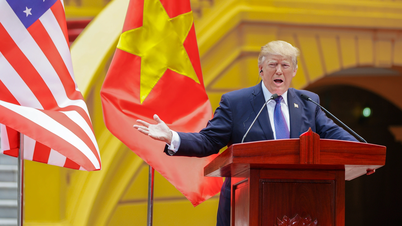



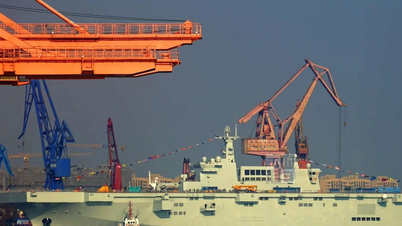















































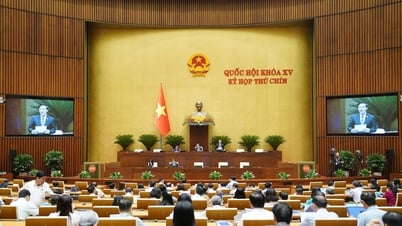




























Comment (0)